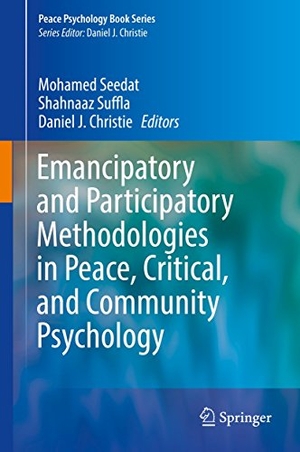Für statistische Zwecke und um bestmögliche Funktionalität zu bieten, speichert diese Website Cookies auf Ihrem Gerät. Das Speichern von Cookies kann in den Browser-Einstellungen deaktiviert werden. Wenn Sie die Website weiter nutzen, stimmen Sie der Verwendung von Cookies zu.
Cookie akzeptieren
Emancipatory and Participatory Methodologies in Peace, Critical, and Community Psychology
- Springer International Publishing
- 2017
- Gebunden
- 220 Seiten
- ISBN 9783319634883
Offering a unique set of case studies that invites readers to question and reimagine the concept of community engagement, this collected work provides an overview and analysis of numerous, creative participatory research methods designed to improve well-being at both the individual and societal level. In a world where there are enormous differences in the wealth and health of people, it is increasingly recognized that sustainable peace requires both a broad--- based public commitment to nonviolence combined with noticeable increments in the wellbeing of people who occupy the lowest socioeconomic strata of societies. This volume focuses on the latter-how to use qualitative research methods to improve well-being
Mehr
Weniger
zzgl. Versand
in Kürze